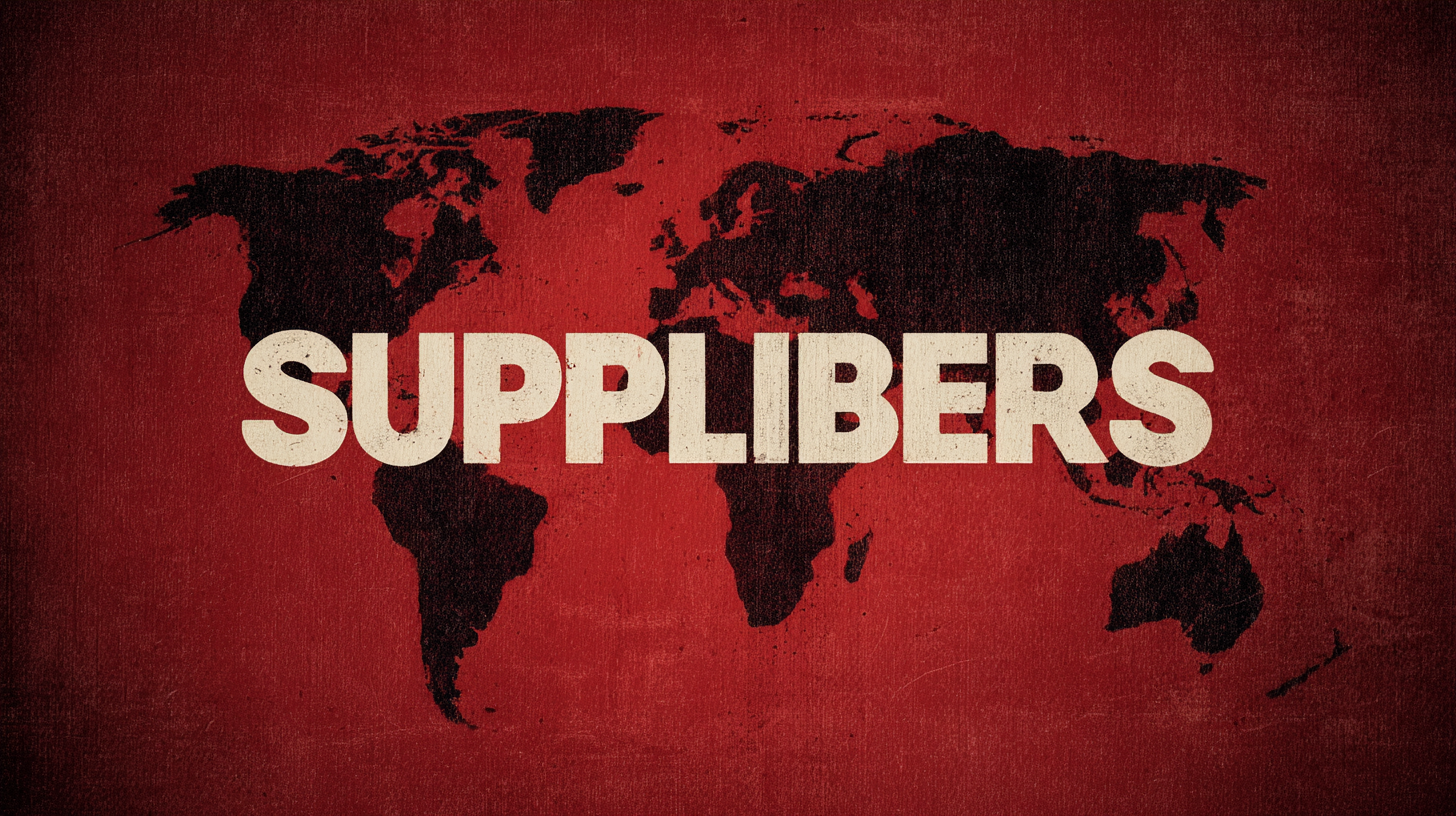

In the ever-evolving landscape of global procurement, the selection of suppliers plays a pivotal role in determining the success of an organization. As companies strive to optimize their supply chains, understanding what constitutes the best suppliers becomes crucial. This blog delves into the industry production standards that define high-quality suppliers, integrating both digital advancements and traditional evaluation methods. By exploring the essential criteria that set exceptional suppliers apart, we will uncover the reasons why these elements are significant in fostering successful procurement strategies. Ultimately, the right suppliers not only enhance operational efficiency but also contribute to long-term business growth and sustainability in a competitive market. Join us as we navigate the key factors that can propel your procurement success through strategic supplier partnerships.

In the realm of global procurement, identifying top suppliers is pivotal for the success of any organization. A thorough understanding of the market landscape is essential. This involves evaluating suppliers not only based on their pricing but also on their reliability, quality of goods or services, and adherence to delivery timelines. Top suppliers should also demonstrate a capacity for innovation, as they can provide fresh insights and solutions that drive efficiency and competitiveness.

Furthermore, establishing strong relationships with potential suppliers is critical. This includes assessing their financial stability, ethical practices, and commitment to sustainability. By prioritizing suppliers that align with organizational values, companies can mitigate risks and foster long-term partnerships. Effective communication and transparency are vital in this process, ensuring a collaborative environment where both parties can thrive. Engaging with suppliers through regular meetings and feedback can also enhance performance and adaptability in an ever-evolving global market.
In recent years, the phrase "Made in China" has undergone a significant transformation, shifting from a label often associated with low-cost production to a symbol of quality and innovation. This evolution is driven by a concerted effort among Chinese manufacturers to enhance the quality of their products. Through investment in advanced technologies, skilled labor, and stringent quality control processes, many suppliers in China are now able to meet and exceed international standards. This shift not only elevates the perception of Chinese products but also broadens their appeal in global markets.

The focus on quality improvements is helping Chinese suppliers secure a competitive edge in the realm of global procurement. As international businesses become more discerning about sourcing, they are increasingly looking for suppliers that not only offer cost advantages but also demonstrate reliability and superior product quality. Consequently, many companies are finding that collaborating with Chinese manufacturers can lead to mutually beneficial partnerships that foster innovation and customer satisfaction. The narrative surrounding manufacturing in China is undoubtedly changing, positioning the country as a key player in the high-quality procurement landscape.
In the realm of global procurement, selecting the right suppliers is paramount to success. According to a report by Deloitte, organizations that prioritize effective supplier assessment can improve their operational efficiency by up to 30%. To identify suppliers that truly stand out, companies must consider multiple criteria beyond the traditional metrics of cost and quality.
Key assessment factors include financial stability, innovation capabilities, and ethical practices. A study published by the Procurement Innovation Council indicates that 57% of procurement professionals prioritize sustainability initiatives when selecting suppliers. Furthermore, suppliers showcasing a robust track record in R&D are preferred, with 72% of businesses asserting that innovation drives their supplier selection process.
Moreover, geographic proximity and response time are essential elements in today’s fast-paced market. A recent survey from McKinsey revealed that 63% of procurement leaders value suppliers that can ensure agility and flexibility in their operations. Therefore, a comprehensive supplier assessment framework that integrates these dimensions is crucial for organizations aiming to secure a competitive advantage in global procurement environments.
Building strong relationships with suppliers is essential for achieving long-term success in global procurement. Strong partnerships go beyond mere transactional interactions; they foster trust and collaboration that can enhance supply chain efficiency and innovation. To cultivate these relationships, communication is key. Regular meetings and open dialogues help in understanding each other’s needs and aligning goals. Developing a robust communication framework ensures that both parties can address challenges proactively, paving the way for a more resilient supply chain.
Tips for engaging suppliers more effectively include sharing information transparently about your company’s goals and challenges. This transparency can encourage suppliers to contribute ideas and solutions that align with your business objectives. Additionally, consider implementing joint development initiatives. By working together on product improvements or logistics optimizations, you establish a sense of shared responsibility and investment in the partnership's success.
Another crucial strategy is to recognize and appreciate your suppliers’ contributions. Frequent acknowledgment of their efforts, whether through feedback or reward programs, can strengthen the bond. Celebrating milestones together not only fosters goodwill but also reinforces your suppliers’ commitment to your shared goals. Engaging with suppliers in this meaningful way ensures that your procurement strategy is supported by strong, mutually beneficial relationships.
Navigating the complexities of global procurement requires a keen understanding of both the challenges and the emerging technologies that can help businesses thrive. Recent reports emphasize that procurement automation and artificial intelligence are not just trends, but essential tools for enhancing efficiency and reducing costs. For instance, a study identified that implementing automated systems can decrease procurement cycle times by up to 60%, allowing companies to respond more swiftly to market changes. This technological shift is reflected in the priorities of leaders across industries, as many are now focusing on direct investments in advanced supply chain technologies to mitigate disruptions caused by geopolitical tensions and other risks.
Moreover, as global supply chains face increased scrutiny, with reports highlighting the top ten risks for 2024, it’s crucial for businesses to adopt best practices that align with these evolving challenges. Companies leveraging data analytics and machine learning can gain valuable insights into supplier performance, enabling informed sourcing decisions that enhance resilience. In fact, organizations that use predictive analytics in their procurement processes report a 20% improvement in supplier collaboration and overall supply chain responsiveness. Ultimately, embracing these advancements is essential for achieving procurement success in a volatile global landscape.
| Supplier Criteria | Importance Level | Challenges Faced | Best Practices |
|---|---|---|---|
| Quality of Products | High | Inconsistent standards | Regular quality audits |
| Pricing Competitiveness | Medium | Market fluctuations | Long-term contracts |
| Delivery Timeliness | High | Logistical delays | Efficient supply chain management |
| Supplier Stability | High | Financial instability | Due diligence and assessments |
| Innovation Capability | Medium | Lack of technological advancement | Collaborative development projects |
| Sustainability Practices | Medium | Regulations compliance | Adoption of green technologies |